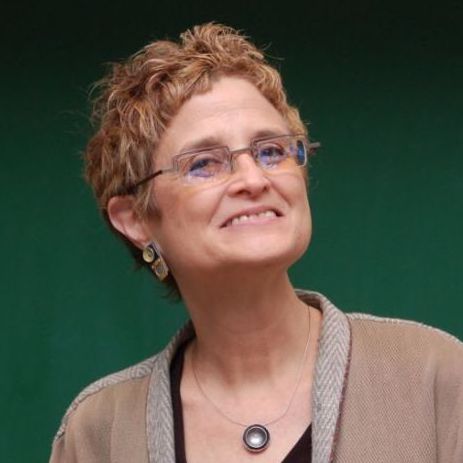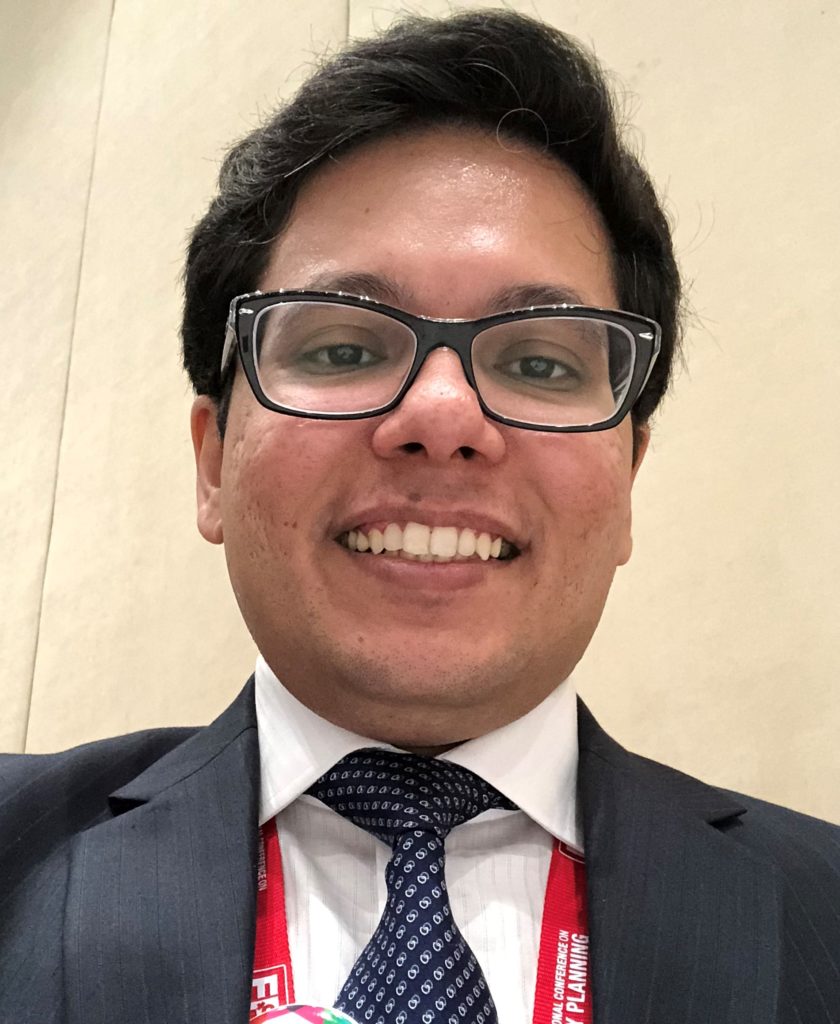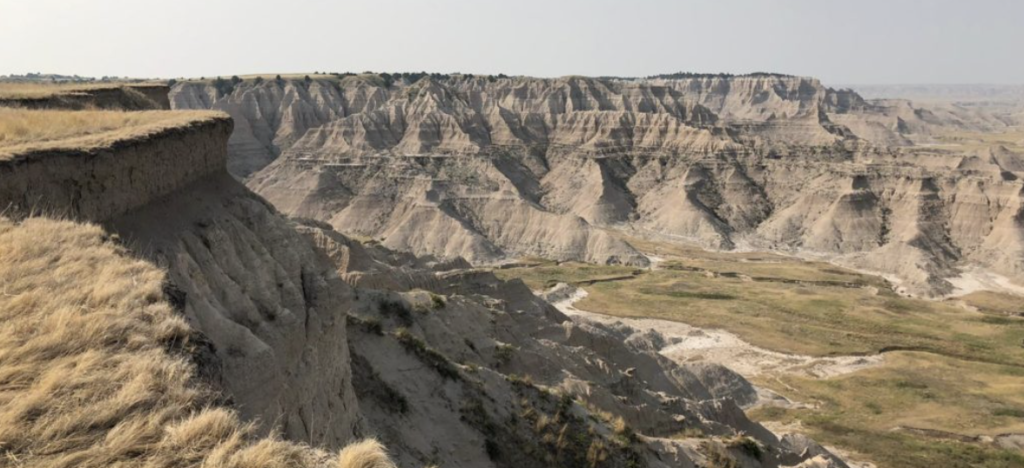Published: 09/18/2020
Dear Global Health Colleagues,
While this newsletter ordinarily focuses on the ongoing pandemic, I would like to take a moment this week to highlight a monumental achievement in global health: wild-poliovirus eradication from the African continent.
The importance of this milestone cannot be overstated, and the decades of hard work to ensure this outcome have many lessons to impart for our current efforts against COVID-19, the subject of my article this week in Stanford Medicine’s Scope blog.
As we celebrate this step towards health equity, we must not look upon this achievement as the inevitable result of the passage of time. Polio eradication was the product of global interest in and commitment to the wellness of all humans, not just those that reside within our borders.
Recently, the United States declared its intention not to join COVAX, the WHO-led effort to swiftly and equitably distribute the coming COVID-19 vaccines around the world. The UN General Assembly also recently passed a resolution for global cooperation around the COVID-19 response — the US did not sign on. Polio eradication in Africa has taught us that global cooperation and solidarity with disease control and elimination is imperative to success.
Polio eradication was made possible through a rigorous understanding and application of science. In Africa, it took work, unimaginable work, work that in some cases cost the lives of committed healthcare workers.
And there is still more work to be done. Vaccine derived polio still remains in parts of the world, including Africa. Moreover, Afghanistan and Pakistan, the two countries with remaining endemic polio, have seen a recent increase in cases as their vaccination campaigns have been obstructed by COVID-19, an issue covered below by Dr. Naeem Majeed in our Note from the Field.
This milestone is the product of a shared global vision and tireless efforts from all sectors. I believe that with the same commitment to multilateral coordination, surveillance and response, development of new tools, adequate financing, and an equitable approach to distribution of all available interventions, we can successfully subdue COVID-19.
In solidarity,

Michele Barry
Drs. Ben and A. Jess Shenson Professor of Medicine and Tropical Diseases
Director of the Center for Innovation in Global Health
Senior Associate Dean for Global Health, Stanford University
Stanford Global Health Faculty Fellow Feature
5 Questions with Dr. Ana Crawford on Stanford’s Partnership with the Pine Ridge Reservation
Global Health Faculty Fellow Dr. Crawford is using COVID-19 as a catalyst for scaling impact in global anesthesiology and critical care, delivering essential trainings around the world, from Rwanda to Pine Ridge Native American Reservation. Read the article here.
Resources
Poliovirus & COVID-19
- Ending wild polio in Africa: A Q&A with Michael Galway and Violaine Mitchell : Commentary and insights from two regional experts from the Bill & Melinda Gates Foundation, whose support has been crucial to polio eradication.
- Polio in Afghanistan: The Current Situation amid COVID-19 (8/27) : A thorough look at the polio situation in Afghanistan — one of two countries left with endemic polio — where COVID-19 has thoroughly disrupted vaccination efforts.
- Mass vaccination against COVID-19 may require replays of the polio vaccination drives(8/18) : The global effort to eradicate wild poliovirus has many lessons to teach us for the coming vaccination efforts for COVID-19, especially with regards to an equitable vaccine rollout.
Global COVID-19 Trends
- Global collaboration for health: rhetoric versus reality (9/12) : With the beginning of the UN General Assembly this week, this article provides us with a much needed wider view of the global situation, one that does not focus solely on COVID-19, and reminds us that “global solidarity cannot be garnered through rhetoric alone”.
- Offline: The crisis of political language (9/12) : A succinct summary of the many deplorable uses of pandemic recover for blatantly political ends.
- An open letter from Stanford doctors (9/10) : One hundred Stanford faculty in infectious diseases, epidemiology, and population health condemn the science behind Dr. Scott Atlas’ recommendations to CDC and the Trump administration.
- COVID-19 exacerbates violence against health workers (9/5) : This increase in violence and harassment is likely “the tip of the iceberg” and does not bode well for the enormous amount of public health work still needed to combat the virus.
- Make COVID recovery ‘a true turning point’ for people and planet, Guterres urges, calling for concerted action by G20 (9/3) : The UN Secretary General implores using this moment to fight climate change, and reminds us that pandemics do not emerge in isolation.
Regional and Country-Specific COVID-19 News
- Safety and immunogenicity of an rAd26 and rAd5 vector-based heterologous prime-boost COVID-19 vaccine in two formulations: two open, non-randomised phase 1/2 studies from Russia (9/4): The Russia vaccine gets its first major publication in The Lancet, inducing antibody responses in all participants, though the pool was quite small at only 40 individuals.
- How Latin America is fighting COVID-19, for better and worse (9/1) : The trends in Latin America are clear – populist leaders are failing their nations in the fight against COVID-19. There are some success stories to heed as well in Costa Rica, Cuba, and Uruguay.
Underserved Populations and Health Disparities
- The Other Way Covid Will Kill: Hunger (9/11) : A stark reminder that effects of the pandemic go far beyond viral pathologies and that our response must address all of its effects.
- COVID-19: a new lens for non-communicable diseases (9/5) : COVID-19 mortality rates increase when overlapping with non-communicable diseases (NCDs), but the virus is also disrupting NCD treatment worldwide.
Note from the Field: Pakistan at war with Poliomyelitis

| Dr. Naeem Majeed, Technical Focal Person for Routine Immunization at EPI Provincial Office, Punjab, Pakistan |
Despite the major successes in Africa, the world is still at war with wild-poliovirus, poliomyelitis. At the heart of the fight is Pakistan, one of only two countries left with endemic wild-poliovirus.
In 2018, the cases were low at merely 12. This changed in 2019, when cases suddenly jumped to 169 (wild and vaccine derived). At the time of this writing, 121 cases have occurred in 2020.

We began our response in March. With a pool of more than 6,000 individuals across the region, we conducted research that yielded unsettling results: people felt they knew enough about COVID-19 and had
Extensive measures are being taken by the Government as well as the partner organizations to overcome this menace. Key issues, however, remain in difficult areas, especially the districts in central Pakistan and along the Pak-Afghan border, as well as in mega-cities like Karachi and Lahore. Weak routine immunization coverage, vaccination refusals, and poor cold chain maintenance in certain areas are often cited as the reasons for continued emergence of new cases.
Another challenge is the oral vaccine derived polio cases. Inactivated poliovirus vaccine (IPV) was introduced in the country in 2015 but the second dose has yet to be introduced, with routine immunizations planned for 2021.
Polio workers, vaccinators, and field staff on the front lines are putting all their efforts towards polio campaigns. However, administrative issues, as well as performance of workers in some areas, has resulted in new cases popping up. It has been noted that most of the cases belong to areas where the governance and program implementation is weak.

Covid-19 has further aggravated the situation as polio campaigns were halted for a few months. The campaigns have now resumed, with precautionary measures in place – the staff involved in immunization is trained in the use of basic PPE. Provision of the PPE to this huge workforce remains a challenge. In some areas, reluctance has been shown by parents as close contact is required between the worker and the child.

Three key things can be done now to eradicate the virus: a) laser focused and integrated approach in the super high risk union councils*, b) strengthening the routine immunization through increasing coverage, which in turn requires additional human resource, and c) sticking to the one-team approach** that had led to near-success in the previous years.
Despite COVID-19 and the many challenges here in Pakistan, if we focus our efforts on these goals, we might soon declare polio eradication not just in Africa, but throughout the world.
*Union councils (UC) are the smallest operating unit of the Government in Pakistan. The number of union councils per district vary from 30 to over 150. Population of a UC varies between 15,000 to around 150,000. Super high risk union councils (commonly called SHRUCs) are the 40 most high risk UCs where polio is concentrated with complex issues. These UCs fall in the provinces of Balochistan, Khyber Pakhtunkhwa and Sind.
**One-team approach refers to the coordination between the routine immunization program (EPI) and the polio eradication initiative (PEI), to reduce verticality and synergize the efforts of each other.
Stanford Global Health Updates & Opportunities
WomenLift Health’s 2021 US Leadership Journey Application
WomenLift Health is part of the Stanford Center for Innovation in Global Health. The fully-funded, 12-month WomenLift Health Leadership Journey imparts contextualized leadership skills to address the individual, organizational, and societal challenges that women leaders in global health face. The Journey will be buttressed by virtual learning, mentoring, coaching touchpoints, week-long learning residencies, as well as a Leadership Project. The 2021-2022 Leadership Journey will take place from March 2021 – March 2022 in an all-virtual format. The deadline for applications is November 13, 2020. Apply here.
WomenLift Health Job Opening: Social Media Community Manager
WomenLift Health is seeking an experienced, innovative, and dynamic individual to implement the organization’s social media strategy. Ideal candidates will have experience coordinating social media communications for organizations, with the ability to think creatively about the execution of content that speaks to each platform. This individual will be responsible for the day-to-day management of WomenLift Health’s social media channels as well as Twitter and Facebook for the Women Leaders in Global Health Conference (WLGH). The WLGH Conference is being hosted by WomenLift Health and will take place on October 13-15 for three hours each day. Social media engagement will ramp up towards and during the conference, and the Consultant will need to be available for the full duration of the Conference Days. Learn more here.
Global Health Equity Scholars (GHES) Fellowship
The Global Health Equity Scholars (GHES) Fellowship is currently receiving applications for a one-year mentored research training program for post-doctoral fellows, upper-level PhD students and professional school (MD, DVM, DrPH, PharmD) students in low- and middle-income countries. The GHES Fellowship is part of the Global Health Program for Fellows and Scholars sponsored by the Fogarty International Center (FIC) and several collaborating institutes and centers at the National Institutes of Health (NIH). The deadline for applications is November 2, 2020. For more information contact Stanford GHES Program Manager Olivia Paige at olivia.paige@stanford.edu or visit this page.
Fogarty-Fulbright Fellows in Public Health Program
The Fulbright US Student Program is currently receiving applications for the Fulbright-Fogarty Fellows in Public Health. The purpose of the program is to promote the expansion of research in public health and clinical research in resource-limited settings. The deadline for applications is October 13, 2020. Please note that the internal university deadlines for Fulbright are earlier than the October date (Stanford deadline: September 13, 2020). For more information contact Olivia Paige at olivia.paige@stanford.edu or visit this page.
Consortium of Universities for Global Health Abstract Submissions
The Consortium of Universities for Global Health (CUGH) invites all persons wishing to report original research, innovative projects or novel programs related to global health to submit abstracts to be considered for presentation. All abstract presentations will be made in unmoderated virtual poster formats (‘electronic posters’). All abstract presenters MUST register and pay the registration fee in order to have an accepted abstract included at the virtual conference. Only one abstract per submitter/presenter will be accepted. Deadline for submission is October 23, 2020. Visit this page for more information.
Upcoming Events and Lectures
COVID-19: The Impact in Africa
The King Center on Global Development and the Center for Innovation in Global Health
Sep 16, 2020 | 11:00 am to 12:00 pm PT
Event information and registration.
While the spread of COVID-19 across sub-Saharan Africa has been more modest than once feared, the strict lockdown measures and the global economic shock have disrupted livelihoods and stalled efforts against other health scourges in the region such as HIV and TB. During this panel discussion, leading experts will analyze the impacts of the pandemic on health, livelihoods, and the economic outlook in countries across sub-Saharan Africa. The speakers are Belinda Archibong, assistant professor of economics at Barnard College, Columbia University, Agnes Binagwaho, vice-chancellor of the University of Global Health Equity (UGHE), and Albert G. Zeufack, the World Bank’s chief economist for Africa. The discussion will be moderated by Pascaline Dupas, the King Center faculty director and professor of economics.
Global Health Conversations with Heidi Larson and Paul Costello on Vaccine Confidence
The Center for Innovation in Global Health
Sep 29, 2020 | 9:00 am – 10:00 am PT
Event information and registration.
The Stanford Center for Innovation in Global Health will be hosting a conversation with Dr. Heidi Larson, a world renowned anthropologist from the London School of Hygiene and Tropical Medicine. In conversation with Stanford Medicine’s Paul Costello, Dr. Larson will discuss her research and investigations into vaccine mistrust and disinformation round the world, as well as her timely debut book, STUCK: How Vaccine Rumors Start—and Why They Don’t Go Away. With more than 200 COVID-19 vaccines around the world racing towards rapid deployment, polls show public trust in a vaccine is waning dramatically at a time when their acceptance and public adoption is most needed. Join us as we dissect the social vectors at the heart of the vaccine panic and shed light on a path forward, and learn about the career of an inspiring global health leader.
NorCal Symposium on Climate and Pandemic Resilience in Health Care
Friday, September 25, 2020
Stanford Medicine and UCSF
Event information and registration.
The symposium, co-sponsored by the Stanford Center for Innovation in Global Health, will educate and empower health care professionals to enact sustainable healthcare practices at their institutions. The COVID-19 pandemic has laid bare the vulnerabilities of health care systems in the US to adapt and mobilize resources needed to provide timely, appropriate, and equitable care. Climate change adds stressors such as wildfires, super storms, and heat waves that further test our capacity. It is critical that we build resilient health care systems, able to respond effectively in times of crisis. Through interdisciplinary sessions with health care workers, sustainability officers, and advocates for sustainable solutions, we will build a community of invested individuals and organizations to create resilient and equitable health care systems.
Women Leaders in Global Health Conference 2020
October 13-15, 2020
WomenLift Health
Event information and registration.
This year’s conference will take place in a virtual format, with three hours of dynamic sessions and speakers each day. There will be two distinct days on women’s leadership in South Asia and Africa, culminating in a day of global dialogue. While the geography-specific days are geared toward South Asia and Africa through both timing and focus, these sessions are open to everyone. The theme of this year’s conference is Connect | Commit | Act. We believe that by coming together, we can shape a collective vision for global health, where diverse women have a seat at the decision-making table.
New Funding Opportunities Specific to COVID-19
SPARK Translational Research Program Pilot Grants – Request for Proposals
Available to Stanford researchers only. The Stanford SPARK program supports the discovery and development of novel therapeutics and diagnostics that address unmet medical needs. SPARK offers funding, education regarding the multi-disciplinary product development process, and project-specific mentorship to enable faculty and trainees to advance promising research discoveries to the clinic and/or commercial sector. Much of the mentorship and education is provided by volunteer advisors from the local biotechnology ecosystem. Education and mentorship are available across the entire spectrum of drug and diagnostic development including the following areas: intellectual property and patent law; assay development; optimization of therapeutic chemical structures; preclinical pharmacology and proof of concept studies; preclinical safety and pharmacokinetics; regulatory science and regulatory agency expectations; clinical study design and conduct; and commercialization/start-up company funding and incorporation. Approximately 60% of projects that complete SPARK advance to commercial partnerships and/or clinical trials. More information Here.
Online List of COVID-19 Funding Opportunities
Stanford’s Research Management Group has created a website that provides a complete listing of funding opportunities for COVID-19 research available to all researchers (not just at Stanford). More information here.
Global COVID-19 Research and Activities at Stanford
- Rosenkranz Prize Winner Leads Effort to Protect Health-Care Workers from COVID-19 in Under-Resourced Countries — Stanford GHES Fellow Ashley Styczynski and collaborators build a website devoted to protecting health-care workers in under-resourced countries, using infographics and videos to show them how to create, wear and preserve personal protective equipment.
- Global Health Faculty Fellow Manu Prakash Shares COVID-19 Innovations With the World— Prakash Lab is publicly sharing their working group documents on projects they have initiated. These are working draft documents that will be updated weekly. These are open projects created focused on mitigating the COVID19 Pandemic. Anyone can join, help or replicate these efforts elsewhere.
